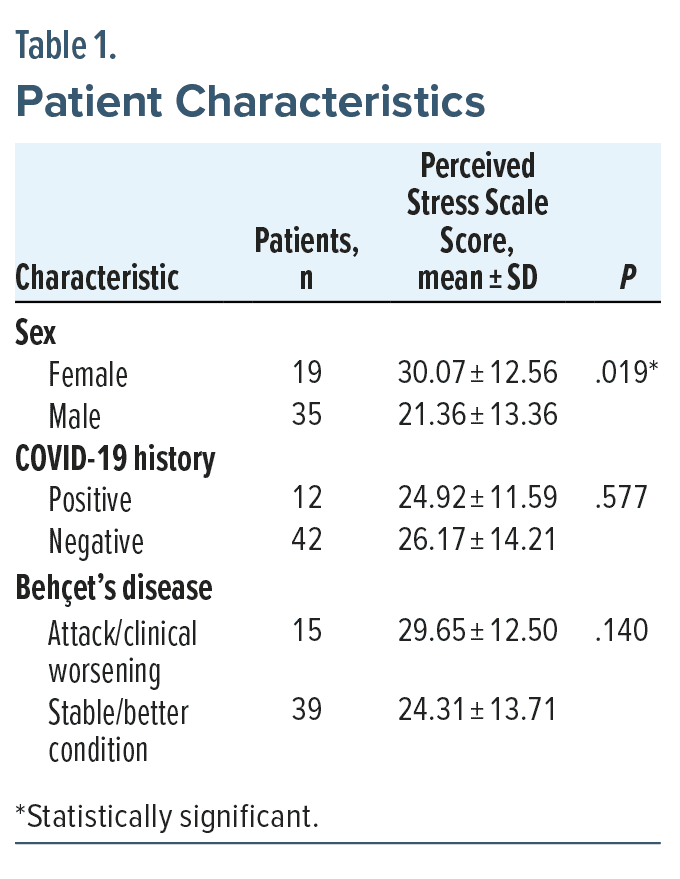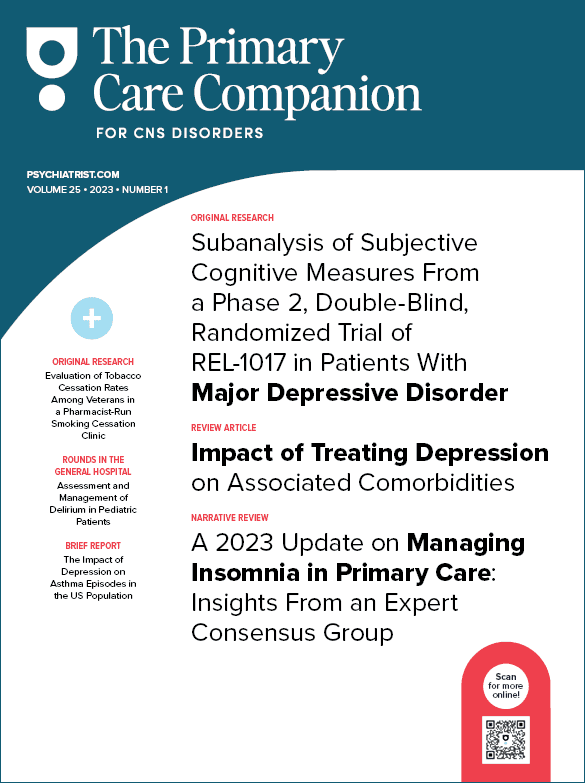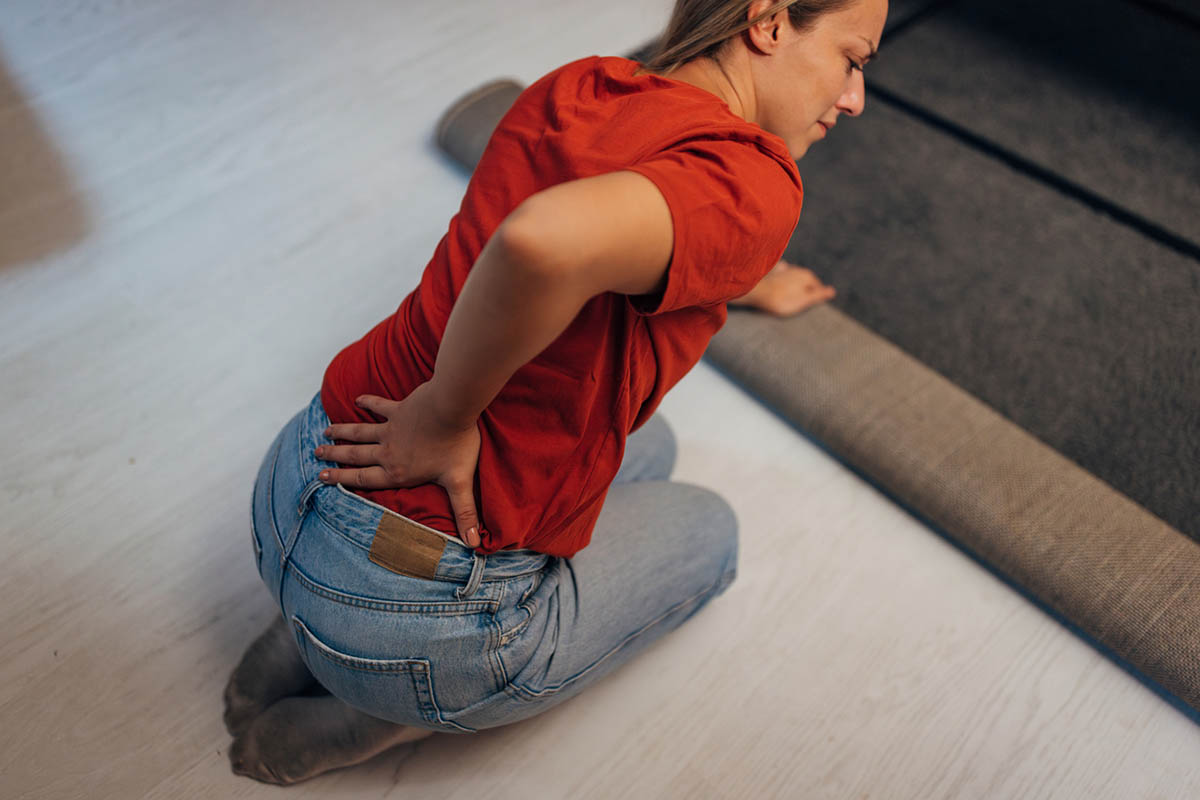Since the end of 2019, COVID-19 has been a source of stress for many people. While some were afraid of getting sick and being hospitalized, others experienced financial hardships (eg, loss of employment) and pandemic-related stressors. Quarantines also had negative psychological effects during the pandemic. The objective of this study was to assess perceived stress associated with the COVID-19 pandemic in patients with neuro-Behçet’s disease with the Turkish version of the Perceived Stress Scale (PSS).1,2
METHODS
Fifty-four patients diagnosed with neuro-Behçet’s disease according to the international Behçet’s diagnostic criteria3 by clinical and imaging methods were included in the study. The questionnaire was administered between February and March 2021. Study participants were contacted by phone due to the pandemic. The questionnaire collected demographics and characteristics of the patients, as well as duration of Behçet’s disease and neuro-Behçet’s diagnosis, current medications, and family history of Behçet’s disease.
The survey included questions about COVID-19 infection to assess disease severity and whether a condition requiring hospitalization had developed. The status of neuro-Behçet’s disease during the pandemic and whether there was any disruption in their outpatient follow-up were also assessed.
The PSS is a widely used psychological instrument for measuring the perception of stress. It was designed to determine how stressful an individual perceives certain life situations. The scale consists of 14 items scored between 1 and 5, with a total score ranging from 0 to 56. The PSS was applied to evaluate the stress levels of the patients in the last month. A high score indicates that the patient’s perception of stress is high.4
RESULTS
Of 54 patients, 47% were male (n = 25) and 53% were female (n = 29). The mean age of the patients was 41.9 years. Seventeen patients had a family history of Behçet’s disease. The mean duration of Behçet’s disease and neuro-Behçet’s disease was 12 and 8.9 years, respectively. It was observed that neurologic involvement occurred 2.48 years after the diagnosis of Behçet’s disease.
The mean PSS score of the patients participating in the study was 25.17. The mean ± SD PSS score was 30 ± 12.5 for female patients and 21.3 ± 13.3 for male patients (P = .019). Twelve of 54 patients had previously tested positive for COVID-19. These patients were not positive when they completed the questionnaire, and there was no statistically significant difference in PSS scores for patients with and without COVID-19 (P = .577) (Table 1). Fifteen of 54 patients had an “attack” described as a clinical worsening related to Behçet’s disease during the pandemic, and their mean ± SD PSS score was 29.65 ± 12.50. On the other hand, 39 of 54 patients had a stable or better course for Behçet’s disease, and their mean ± SD PSS score was 24.31 ± 13.71. We found that PSS score was not related to disease course (P = .140). There was no significant difference between the years of diagnosis of Behçet’s disease (P = .132) and neuro-Behçet’s (P = .129), comorbidities (diabetes mellitus: P = .445, hypertension: P = .294, coronary artery disease: P = .901, hyperlipidemia: P = .461), and PSS scores.
CONCLUSION
COVID-19 primarily affects the respiratory system but can also cause neurologic and psychiatric issues.5,6 While social isolation can prevent transmission of COVID-19, it has some negative effects on an individual’s mental health and can increase rates of stress, anxiety, and depression.7
The COVID-19 pandemic has affected the lives of healthy individuals as well as people with chronic diseases due to the associated stress. Although this study included a young population, moderate PSS values were obtained in patients with neuro-Behçet’s disease, and we observed higher scores in female patients.
Article Information
Published Online: September 5, 2023. https://doi.org/10.4088/PCC.22br03476
© 2023 Physicians Postgraduate Press, Inc.
Prim Care Companion CNS Disord. 2023;25(5):22br03476
Submitted: December 12, 2022; accepted April 7, 2023.
To Cite: Midi I, Gencel A, Sahin H, et al. Perceived stress associated with COVID-19 in patients with neuro-Behcet’s disease. Prim Care Companion CNS Disord. 2023;25(5):22br03476.
Author Affiliations: Marmara University, School of Medicine, Department of Neurology, Istanbul-Turkey (Midi, Irmak); Marmara University, School of Medicine, Istanbul-Turkey (Gencel, Sahin, Mertoglu, Bicer, Akbas).
Corresponding Author: Ipek Midi, MD, Marmara University, School of Medicine, Department of Neurology, Istanbul-Turkey ([email protected]).
Relevant Financial Relationships: None.
Funding/Support: None.
References (7)

- Erci B. Reliability and validity of Turkish version of Perceived Stress Scale [Turkish]. J Ataturk University School of Nursing/Ataturk Universitesi Hemsirelik Yuksekokulu Dergisi. 2006; 9:58–63.
- Eskin M, Harlak H, Demirkıran F, et al. The adaptation of the Perceived Stress Scale into Turkish: a reliability and validity analysis. Yeni Symposium. 2013;51(3):132–140.
- Davatchi F, Assaad-Khalil S, Calamia KT, et al; International Team for the Revision of the International Criteria for Behçet’s Disease (ITR-ICBD). The International Criteria for Behçet’s Disease (ICBD): a collaborative study of 27 countries on the sensitivity and specificity of the new criteria. J Eur Acad Dermatol Venereol. 2014;28(3):338–347. PubMed CrossRef
- Cohen S, Williamson G. Perceived stress in a probability sample of the United States. In: Spacapan S, Oskamp S, eds. The Social Psychology of Health. Newbury Park, CA: Sage; 1988.
- Göksu Ö, Kumcağız H. Covid-19 salgınında bireylerde algılanan stres düzeyi ve kaygı düzeyleri. Turk Stud. 2020;15(4):463–479. CrossRef
- Çınar D, Kılıç Akça N, Zorba Bahçeli P, et al. Perceived stress and affecting factors related to COVID-19 pandemic of emergency nurses in Turkey. J Nurs Manag. 2021;29(7):1916–1923. PubMed CrossRef
- Huremovic ́ D. Psychiatry of pandemics: a mental health response to infection outbreak. Croat Med J. 2020;61(3):306. CrossRef
Enjoy free PDF downloads as part of your membership!
Save
Cite
Advertisement
GAM ID: sidebar-top





